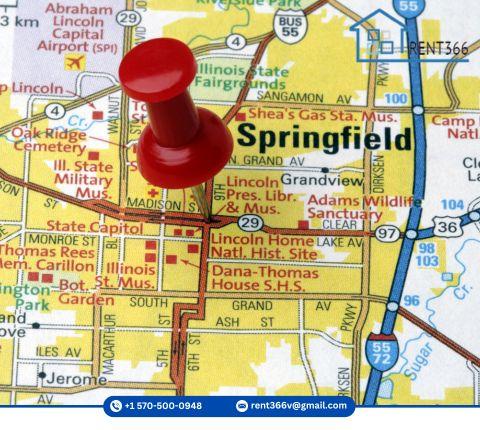Where to Check for advertisements and How to Secure the Perfect Rental Property in Springfield, Massachusettts
1. Online Rental Platforms
a. Popular Rental Websites
The internet is a powerful tool for finding rental listings. Some of the most popular websites include:
- Zillow: Offers a vast array of listings, detailed property descriptions, and market trends.
- Apartments.com: Provides filters for amenities, location, and price range, making it easy to find suitable options.
- Realtor.com: Features listings from various real estate agents, allowing you to access a wide range of properties.
- Craigslist: A local favorite, this platform includes both private listings and those from property management companies.
b. Local Real Estate Websites
Local real estate agencies often have exclusive listings not found on larger platforms. Websites such as:
- Cohen & Company Real Estate: Specializes in Springfield properties and offers detailed listings.
- MGM Real Estate: Features listings in and around Springfield, with options for different budgets.
c. Social Media Groups
Social media platforms, especially Facebook, have numerous groups dedicated to rental listings. Search for groups such as "Springfield MA Rentals" or "Springfield Apartments for Rent" to find postings directly from landlords or current tenants.
2. Community Boards and Local Newspapers
a. Community Boards
Check local community boards, which are often found in coffee shops, grocery stores, and libraries. These boards may have flyers posted by landlords looking for tenants.
b. Local Newspapers
While many people turn to online listings, local newspapers still provide valuable information about available rentals. The Republican and other local publications often feature classified ads for rental properties.
3. Networking
a. Word of Mouth
Tell friends, family, and colleagues that you're looking for a rental. Networking can often lead to opportunities before they are advertised publicly.
b. Real Estate Networking Events
Attend local real estate networking events or landlord meetings. These gatherings can connect you with property owners and real estate professionals who may have upcoming rentals.
4. Preparing to Secure a Rental
a. Organize Your Documentation
Before you start contacting landlords or property managers, ensure you have the necessary documents ready:
- Proof of Income: Pay stubs or a letter from your employer to demonstrate your financial stability.
- Rental History: A list of previous rentals, including landlord contact information.
- Credit Report: Some landlords may request this, so it's good to have it handy.
b. Crafting a Strong Rental Application
A well-prepared rental application can set you apart from other applicants. Include:
- Personal Information: Name, contact information, and current address.
- Rental History: Previous addresses, rental amounts, and landlord references.
- Financial Information: Current employment details and income verification.
5. Visiting Properties
a. Schedule Viewings
Once you find potential rentals, schedule viewings to inspect the properties. Pay attention to:
- Condition: Look for signs of damage or disrepair.
- Amenities: Consider if the property meets your needs, such as laundry facilities or parking.
- Neighborhood: Explore the surrounding area to assess safety, schools, and access to public transportation.
b. Ask Questions
During the viewing, don't hesitate to ask questions:
- What is included in the rent (utilities, parking, etc.)?
- Are there any additional fees (maintenance, pet fees)?
- What is the lease duration and renewal options?
6. Making an Offer
a. Express Your Interest
If you find a rental that you love, express your interest to the landlord or property manager. A positive attitude and clear communication can go a long way.
b. Submit Your Application Promptly
Given the competitive rental market in Springfield, it’s crucial to submit your application as soon as possible. Be prepared to provide the necessary documentation immediately.
7. Signing the Lease
a. Review the Lease Agreement
Before signing, carefully review the lease agreement. Ensure you understand:
- Rent amount and due date
- Lease duration and renewal options
- Terms for breaking the lease
b. Ask for Clarifications
If anything is unclear, ask for clarification. Understanding your rights and responsibilities is essential before committing to a rental agreement.


Comments
There are no comments yet
Leave a Comment